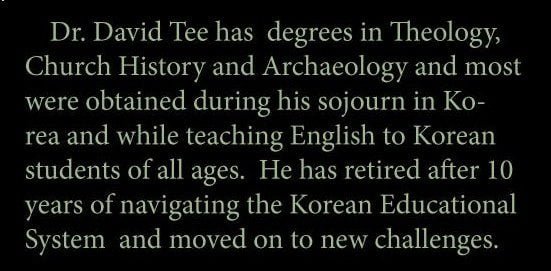
In response to my post, Twenty-One Things You Might Not Know About Evangelical Churches and Pastors, “Dr.” David Tee — not his real name — had this to say about me:
When you read through the list, the first thing that comes to mind is that the atheist is envious or jealous of the Church and its perks. One thing he forgets is that those items are all legal and for the most part, not sought out by the church.
I am “envious or jealous of the Evangelical churches and their perks?” Really? What evidence does Tee have for this claim? None. Why would I be envious or jealous of Evangelical churches and their pastors? If I chose to do so, I could start an Evangelical church today, claim I am a “Dr” (I am still ordained), and start holding services on Sunday. Every dime collected on that Sunday and every Sunday after that would be tax-free. The only reason I don’t do this is that I have integrity.
I see nothing within Evangelicalism to envy. I have no remorse or buyer’s regret over leaving the ministry and leaving Christianity. Neither does my wife, neither do most of my children. Polly and I wouldn’t start attending an Evangelical church even if it PAID us to do so. Once free of prison, why would I ever want to return? No thanks.
Tee continues to use my writing for his blog without mentioning me by name. At least he linked to the aforementioned article. If Tee really wants more people to read his Fundamentalist screeds, he should mention me by name. I am, after all, the name draw, not “Dr.” David Tee. Besides, if you are going to criticize or critique someone publicly, you should mention that person by name. It’s the right thing to do, Mr. T.
Here’s the irony I see in Tee’s comment. My post was simply a list of twenty-one facts about Evangelical churches and pastors. Not my opinions, just facts. Tee did not criticize one word of my post. How could he? Everything I wrote was factual. Instead, Tee decides to attack my character. What is it with Fundamentalists who can’t play well with others, who go after someone’s character instead of engaging their ideas? One need only read what Tee wrote about Ravi Zacharias’ victims to see character assassination put into practice.
Previous articles about David Tee:
NO COMMENT: When Science and the Bible Conflict, Bible Right, Science Wrong
Christians Say the Darnedest Things: Secular Scientists are Con Men
Bruce Gerencser, 68, lives in rural Northwest Ohio with his wife of 47 years. He and his wife have six grown children and sixteen grandchildren. Bruce pastored Evangelical churches for twenty-five years in Ohio, Texas, and Michigan. Bruce left the ministry in 2005, and in 2008 he left Christianity. Bruce is now a humanist and an atheist.
Your comments are welcome and appreciated. All first-time comments are moderated. Please read the commenting rules before commenting.
You can email Bruce via the Contact Form.

I still think a humanist church led by you would be awesome. Of course, I know it’s not doable. But I’m sure any “sermon” you gave would be true and encouraging to us non-church people. 😍❤😂
I forgot to click the “notify” box.
This David Thiessen is a real priggish twerp. The churches don’t have perks, unless it’s the pastor,elders and staff,if they’re well paid. There’s simply nothing to be jealous of, Thiessen !! And on top of that,your advice just sucks,period. I pity your family.
“One thing he forgets is that those items are all legal and for the most part, not sought out by the church.”
and that is completely a lie. But golly, those evangelicals don’t care how many times they do that.
After Christopher Hitchens’ death, Father (now Bishop) Robert Barron opined, in his “Word on Fire” program, that Hitchens was actually a very religious man. This required a facile and transparent redefinition of “religious,” of course. Barron characterized Hitchens as a man of “deep religiosity,” even “profoundly religious.” He points to Hitchens’ passion for justice, his morality, as evidence that Hitchens was responding to – Barron’s words – “what I would call God.” “He hated religion,” says Barron, “but, man, he came back to religion all the time!”
It was as if Barron just couldn’t stomach the thought that the famous atheist Hitchens said what he meant and meant what he said. Barron discussed Hitchens in many episodes of his program, and devoted writings to Hitchens. After Hitchens was diagnosed with esophageal cancer, Barron wrote: “Might it be an occasion for the famous atheist to reconsider his position? Perhaps. Might it be the means by which Hitchens comes to think more deeply about the ultimate meaning of things? Could be. Might it bring others to faith? Maybe.” In any event, Barron suggested that Catholics ought, nonetheless, to pray for Hitchens.
They just can’t stand it when someone is freed from the rules, restrictions, beliefs, excesses, and cruelty of religious pageantry, privilege, practice, and thought prison. The vehemence of their attacks on the “lost souls,” the ex-communicated, the shunned, actually suggests the weakness of their own conviction.
But I could be wrong. So please pray for me.
In addition to betraying weak conviction, I think that people like Barron are in some respect coveting the fame of people like Hitchens, trying to get some of the attention by forcibly dragging an ideological opponent into their own camp.
Hold ’em by Zoom. I’ll attend here in California, and properly tithe.